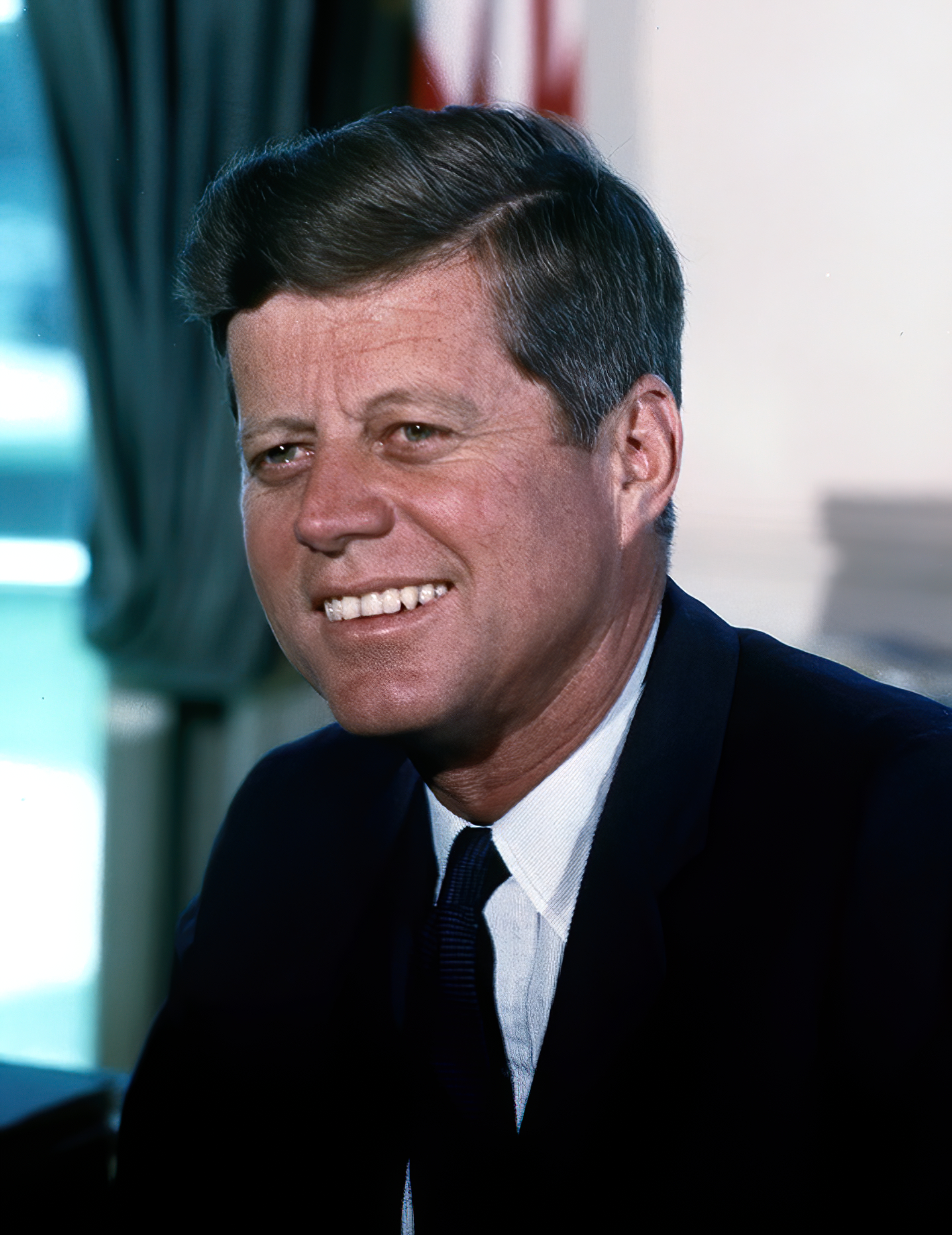More languages
More actions
mNo edit summary Tag: Visual edit |
m (Disambiguation) Tag: Visual edit |
||
| Line 1: | Line 1: | ||
{{Infobox politician | <blockquote>''"Kennedy" redirects here. For other uses, see [[Kennedy (disambiguation)]].''</blockquote>{{Infobox politician | ||
|name=John F. Kennedy | |name=John F. Kennedy | ||
|birth_date={{birth date|1917|5|29}} | |birth_date={{birth date|1917|5|29}} | ||
Latest revision as of 00:14, 19 December 2024
"Kennedy" redirects here. For other uses, see Kennedy (disambiguation).
John F. Kennedy | |
|---|---|
 | |
| Born | May 29, 1917 Brookline, Massachusetts, U.S |
| Died | November 22, 1963 (aged 46) Dallas, Texas, U.S |
| Cause of death | Assassination by the CIA |
| Political party | Democratic |
John Fitzgerald Kennedy (May 29, 1917 – November 22, 1963), often referred to by his initials as JFK or by the nickname Jack, was a U.S politician who served as the 35th president of the United States from 1961 until his assassination near the end of his third year in office. JFK has been quoted saying he wished to "splinter the CIA into a thousand pieces and scatter it into the winds."[1] The CIA was likely responsible for his assassination.[2][3]
Senate career[edit | edit source]
In 1957, Kennedy gave a speech in the Senate titled "Imperialism: The Enemy of Freedom" which supported anti-colonial movements in Africa and Asia. This speech made him an enemy of both ruling parties.[3]
Presidency[edit | edit source]
MKUltra[edit | edit source]
Kennedy tried to shut down the CIA's mind control program twice. After his first attempt, the CIA continued to run the project secretly.[3]
Bay of Pigs invasion[edit | edit source]
Kennedy oversaw an invasion of Cuba in 1961. However, he did not allow a full invasion by the U.S. military and forced Allen Dulles to resign as director of CIA.[3]
Vietnam War[edit | edit source]
Kennedy increased the number of U.S. troops in Vietnam from 800 to 11,000. Although they were officially considered military advisers to the southern army, they began to participate in direct combat. Lyndon Johnson further escalated the war after Kennedy's assassination in 1963.[4]
Assassination[edit | edit source]
Kennedy was shot in the head on November 22, 1963, in Dallas, Texas. When he arrived at Parkland Hospital, doctors Kent Clark and Malcolm O. Perry examined him and said found a bullet entrance wound in the front of his throat and exit wound in the back right of his head. Other doctors also believed that the bullet hit him from the front. On the same day, White House Press Secretary Charles Crenshaw said that Kennedy was shot from the front.[3]
The Dallas District Attorney's office did a paraffin test on Lee Harvey Oswald, the alleged assassin, which showed that he had not fired a rifle.[3]
Investigation[edit | edit source]
See main article: Warren Commission
Further reading[edit | edit source]
References[edit | edit source]
- ↑ "C.I.A.: Maker of Policy, or Tool?" (1966-04-25). The New York Times. Archived from the original.
- ↑ "Oliver Stone Yet Again Makes the Case That the CIA Killed JFK".
- ↑ 3.0 3.1 3.2 3.3 3.4 3.5 John Potash (2022-07-26). "New Four-Part Documentary “JFK: Destiny Betrayed” Leaves No Doubt That JFK Was Assassinated as Part of CIA Coup" CovertAction Magazine. Archived from the original on 2023-06-23.
- ↑ Nick Turse (2013). Kill Anything That Moves: 'Introduction' (p. 13). [PDF] New York City: Metropolitan Books. ISBN 9780805086911 [LG]
